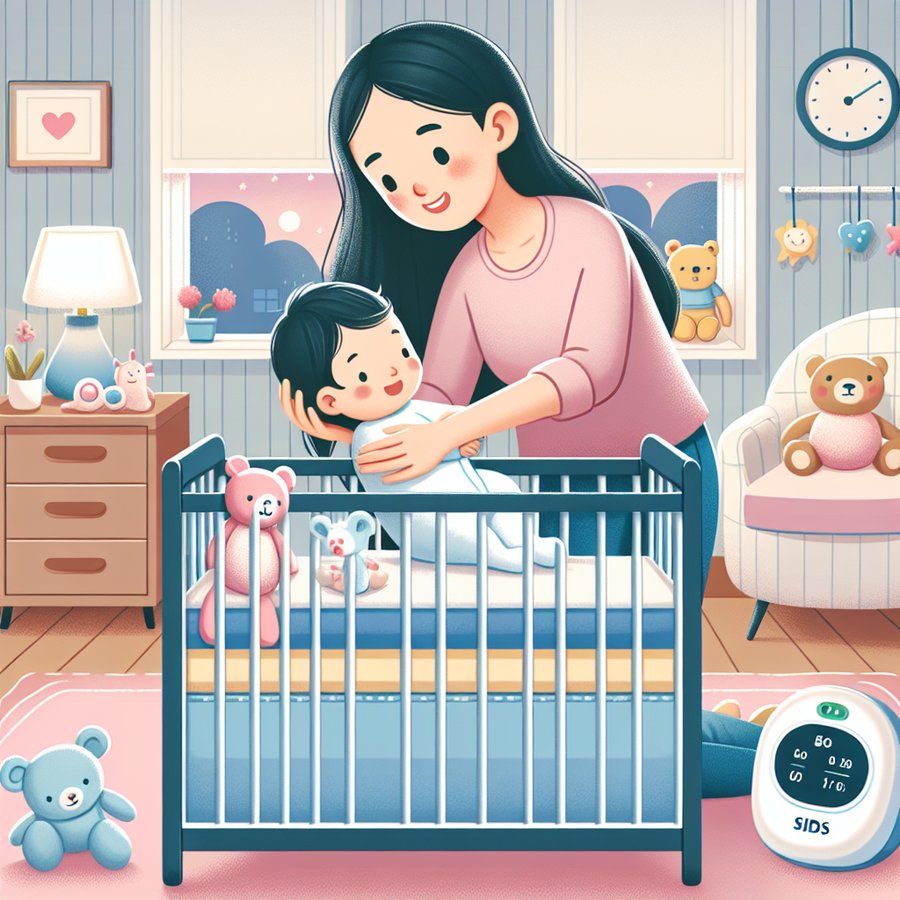SIDS Prevention for 4-Months-Old to 6-Months-Old babies is a critical topic that concerns many parents and caregivers. Understanding the measures that can help reduce the risk of Sudden Infant Death Syndrome (SIDS) during this vulnerable age range is essential for ensuring the safety and well-being of infants. This comprehensive guide aims to provide you with valuable insights and practical tips on SIDS prevention strategies.
SIDS Prevention for 4-Months-Old to 6-Months-Old: Creating a Safe Sleep Environment
One of the most effective ways to prevent SIDS is by creating a safe sleep environment for your baby. This involves placing the baby on their back to sleep, using a firm sleep surface such as a mattress in a safety-approved crib, and keeping soft objects and loose bedding out of the baby's sleep area.
It is also crucial to maintain a comfortable room temperature to avoid overheating, which has been associated with an increased risk of SIDS. The American Academy of Pediatrics recommends keeping the room temperature at a level that feels comfortable for a lightly clothed adult. For more detailed guidance on creating a safe sleep environment, visit Safe Sleep Practices to Reduce the Risk of SIDS.
The Importance of Breastfeeding in SIDS Prevention
Breastfeeding has been shown to have a protective effect against SIDS. The act of breastfeeding provides not only vital nutrients but also important antibodies that help protect infants from various infections. While the exact mechanism is not fully understood, it is believed that breastfeeding contributes to the development of a stronger immune system, which in turn may help reduce the risk of SIDS.
To support breastfeeding mothers, it is advised to seek guidance from healthcare professionals and consider using resources such as Breastfeeding Challenges: Mastitis Symptoms and Treatments for issues that may arise during the breastfeeding journey.
Immunizations and Routine Health Check-ups: A Key to SIDS Prevention
Keeping up with your baby's immunization schedule and routine health check-ups is another critical step in SIDS prevention. Vaccinations are an essential part of protecting infants from severe infections that can increase the risk of SIDS. The Centers for Disease Control and Prevention (CDC) provides an up-to-date vaccination schedule for babies and toddlers, highlighting the importance of timely immunizations.
Regular health check-ups allow pediatricians to monitor the baby's growth and development, identifying any potential issues early. For parents looking to learn more about the benefits of vaccinations, the article Vaccination Schedule for Babies: Keeping Up with Immunizations offers valuable insights.
Additional Tips for Reducing the Risk of SIDS
Beyond the primary strategies mentioned above, there are several additional tips that can help reduce the risk of SIDS for babies aged 4-months-old to 6-months-old. These include avoiding exposure to smoke, ensuring that the baby does not become too hot during sleep, and offering a pacifier at naptime and bedtime.
Understanding infant CPR can also be lifesaving in emergency situations. Parents and caregivers can benefit from learning this crucial skill through resources like Understanding Infant CPR: A Lifesaving Guide for Parents. Additionally, for tips on preventing common hazards that could impact your baby's safety, consider reading Common Household Hazards for Babies and How to Childproof.
In conclusion, while the exact cause of SIDS remains largely unknown, following recommended sleep practices, breastfeeding, keeping up with immunizations, and taking additional safety measures can significantly reduce the risk. By staying informed and proactive, parents and caregivers can create a safer environment for their infants during the critical 4-months-old to 6-months-old phase.
Remember, it is always best to discuss any concerns or questions with your pediatrician, who can provide personalized advice based on your baby's specific health and development needs.













